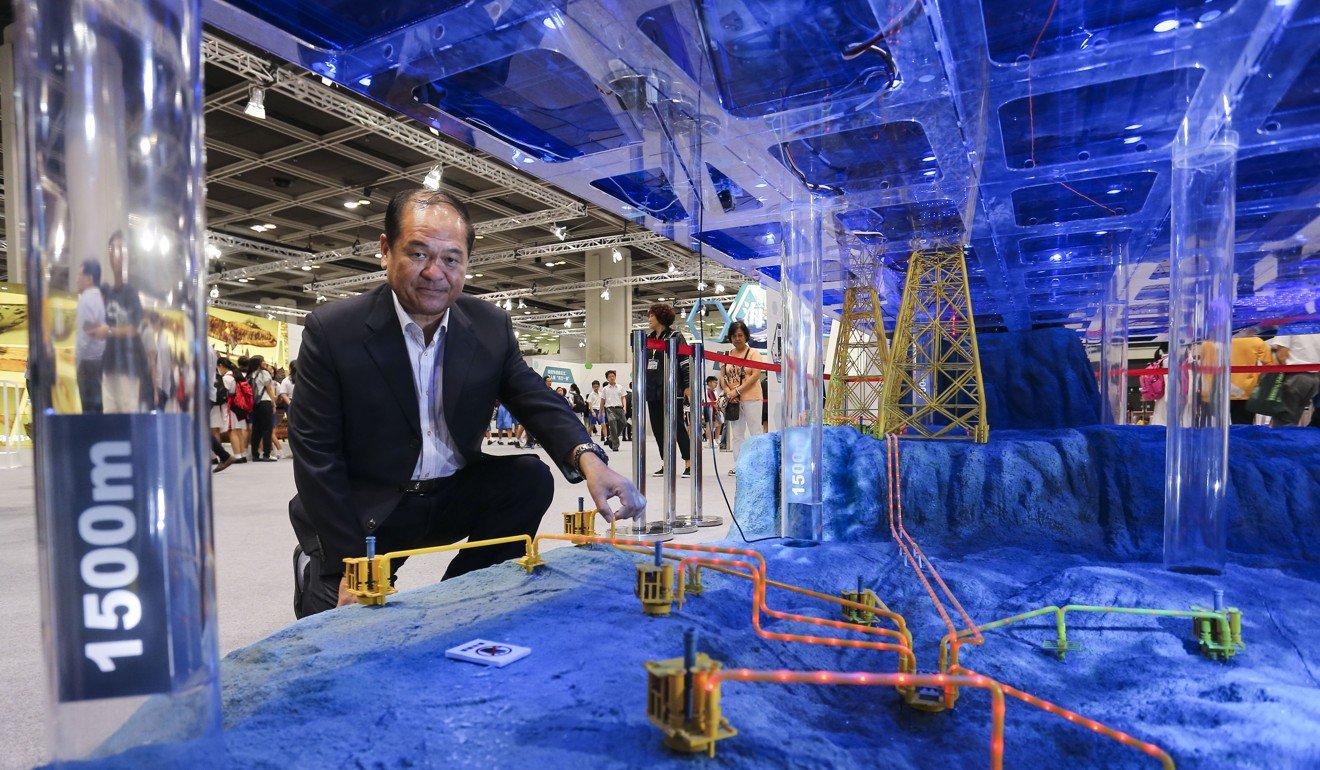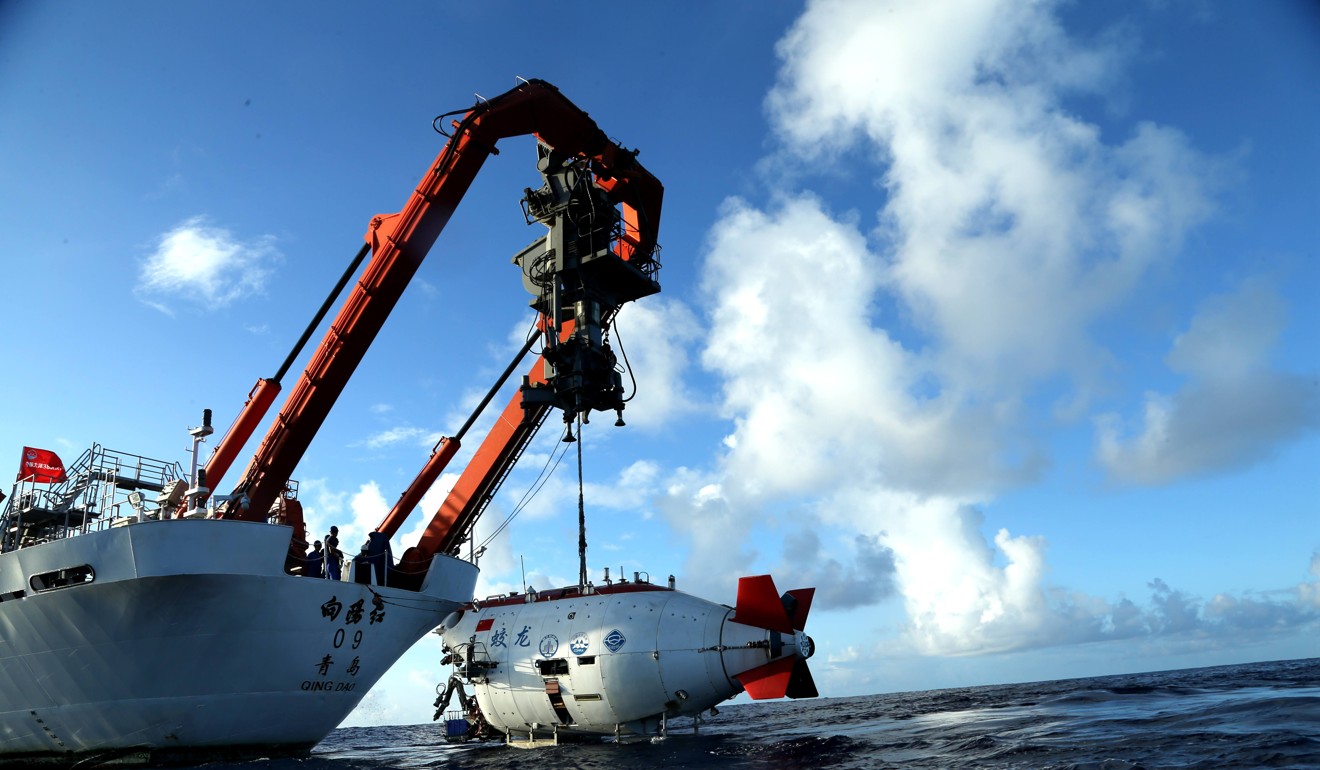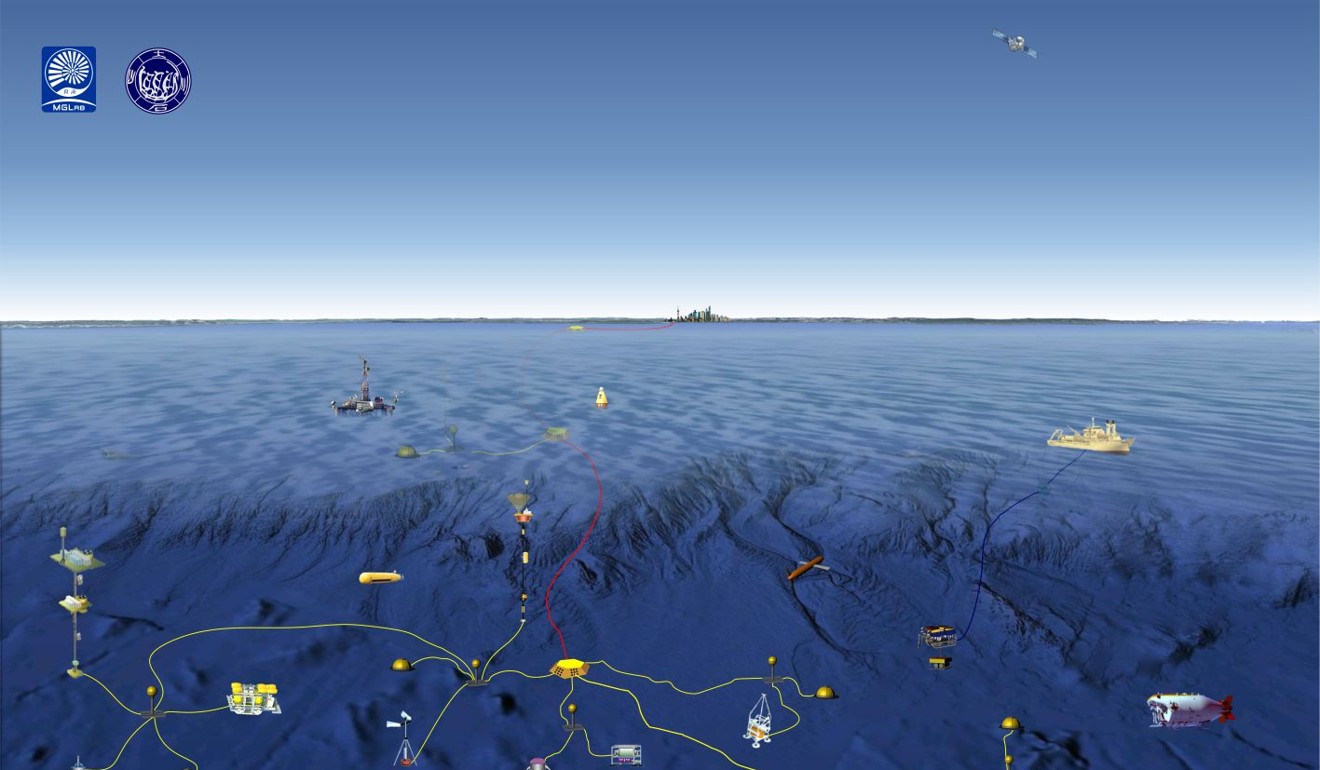
Underwater station could be a game changer, Chinese scientist says
But Beijing is more focused on developing technology to find natural resources, according to deep-sea researcher

China should lead the way on deep-sea research by realising its goal of building the world’s first manned underwater station, a top mainland scientist says.
“Exploration in both the deep sea and in space started around the 1940s. But while we have already sent many astronauts and rockets into space, global development in deep-sea technology is still far behind,” Liu Xincheng, chief adviser to the deep-sea science and engineering institute at the Chinese Academy of Sciences, said on Thursday in Hong Kong, where he was attending a conference on underwater science.

China is the fifth country to develop deep-sea exploration technology – at an ocean depth of 1,000 metres and beyond – after the United States, France, Russia and Japan.
Liu was part of the Chinese team that sent the Jiaolong manned submersible, which can reach the greatest depths of any in the world, down 7,002 metres in 2012.

He said that overall, China lagged behind developed countries in underwater science technology.
“The technology required to develop equipment needed for deep-sea exploration is even more advanced than that needed for outer space because of the pressure – an area as small as the size of a fingernail needs to be able to withstand the weight of 700 kilograms,” he said.
But if China can build a planned underwater station it could be a game changer, Liu said.
The proposed deep-sea platform is second on the list of 100 science and technology projects included in Beijing’s five-year economic plan.
The Jialong can take three crew members to a depth of around 7,000 metres for 12 hours at a time, but Liu said a permanent station would allow dozens of scientists to be based underwater and carry out deep-sea research for longer periods – for months or even years.

Liu said the technology was being developed and scientists were in regular contact with the government about the project, though he believed it would take a decade before an underwater station was in place.
But he added that China was still more focused on developing the technology to find natural resources than on scientific research as the country relied on foreign imports for most of its energy needs.
The Jialong holds the record for the furthest mission in the Mariana Trench – the deepest part of the world’s oceans – but Liu said it needed to go further if it was to make any major scientific discoveries.
“Exploring the sea for natural resources is a very narrow pursuit,” he said. “Scientific research is really directly related to our understanding of humankind.”